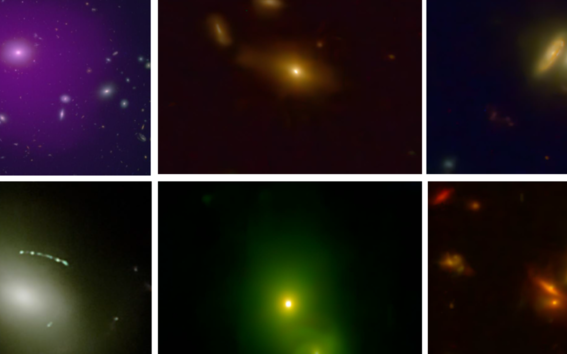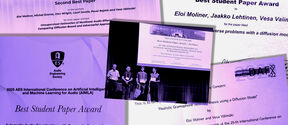James Webb telescope gives unprecedented open access to images of the deep universe

COSMOS-Web was the largest General Observer programme selected for Cycle 1 of the James Webb Space Telescope (JWST), including imagery from some 255 hours of observation. The survey has captured some of the rarest objects in the universe, and now these images and supporting data are available for scientists – and the public alike – to delve in and make further discoveries.
As part of this major international release, which draws on expertise from 95 universities and research institutions worldwide, two companion research papers led by astrophysicist Ghassem Gozaliasl from Aalto University demonstrate the scientific potential of the new COSMOS2025 catalog.
‘This public release of the largest deep space catalogue ever created is a remarkable step for science and society. It democratizes access to the early universe, enabling not only scientists but also students, educators, and the public to explore our cosmic origins interactively,’ says Gozaliasl. ‘It’s especially exciting that researchers from Finland have contributed to this effort — showcasing how global collaboration and open science are shaping the future of discovery.’
Gozaliasl’s latest research focuses on how galaxies grow and evolve across cosmic time, using JWST’s unprecedented imaging capabilities and modern machine learning tools.
‘Thanks to JWST and the COSMOS-Web survey, we can now trace how galaxies shut down star formation, undergo morphological transformation, and how these processes are shaped by their environment across cosmic time, even predicting galaxy properties using AI-driven methods,’ he says.
The catalogue’s public launch was announced by Rochester Institute of Technology on June 5, 2025. Read more here.
This news item was originally published on the Aalto University website on 6.6.2025
Read more news
A survey on users' experiences of Mykanta in collaboration between Aalto University and Kela
Senior university lecturer Sari Kujala's research group is exploring, in collaboration with Kela, users' experiences with the Mykanta online patient portal and the MyKanta mobile application.
Specialised AI models could be Finland's next global export
Finland has the potential to build AI solutions that are different from ChatGPT-like large language models. Aalto University's School of Electrical Engineering already has decades of experience in developing specialised, resource-efficient AI models. They could be a key component of future 6G networks, automation, and industrial systems – and the next competitive edge of our country.
Professor Patric Östergård becomes a member of the Finnish Society of Sciences and Letters
Finnish Society of Sciences and Letters is Finland's oldest science academy. It promotes scientific discussion, publishes scientific literature, awards prizes and provides financial support for research.